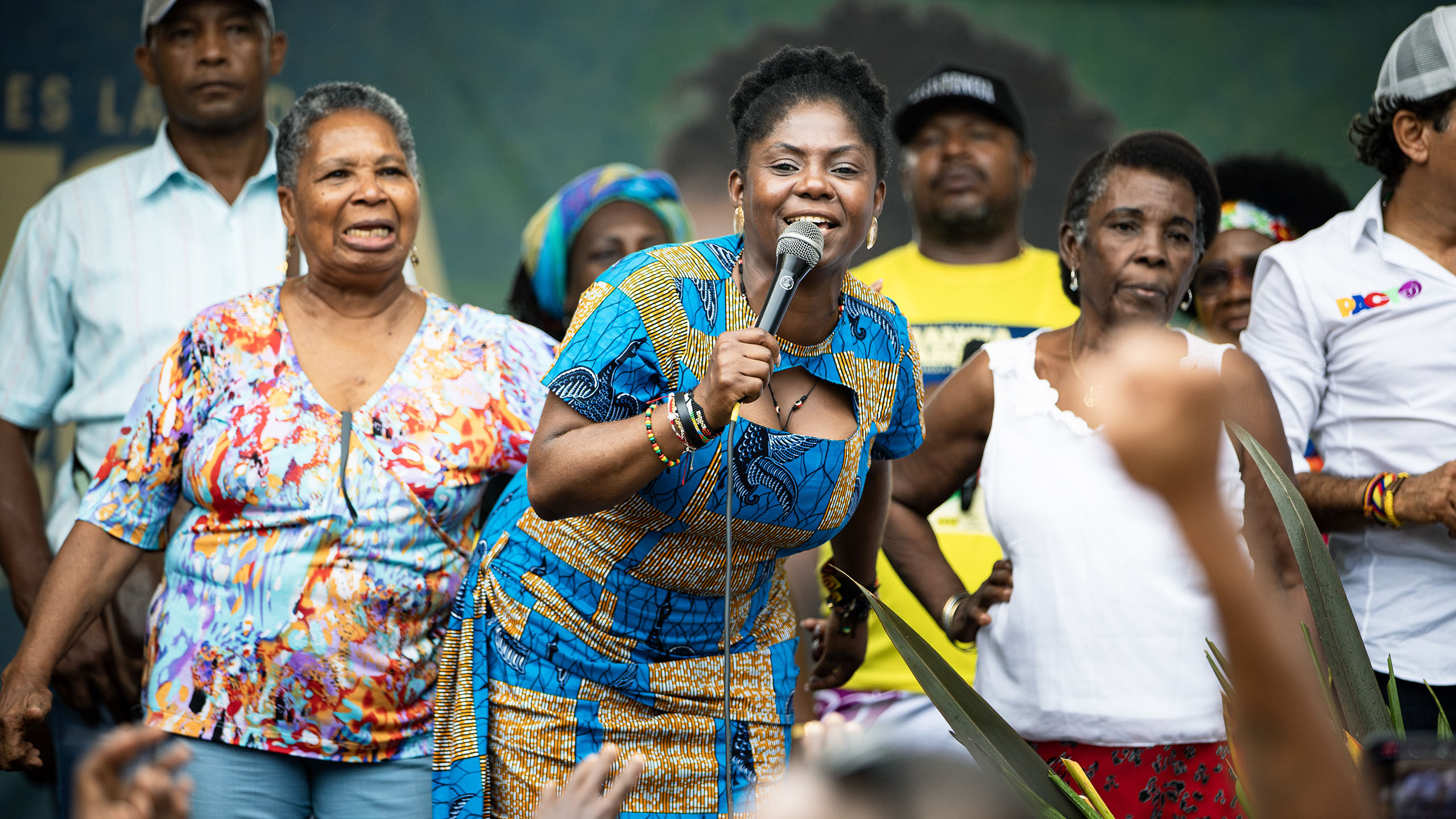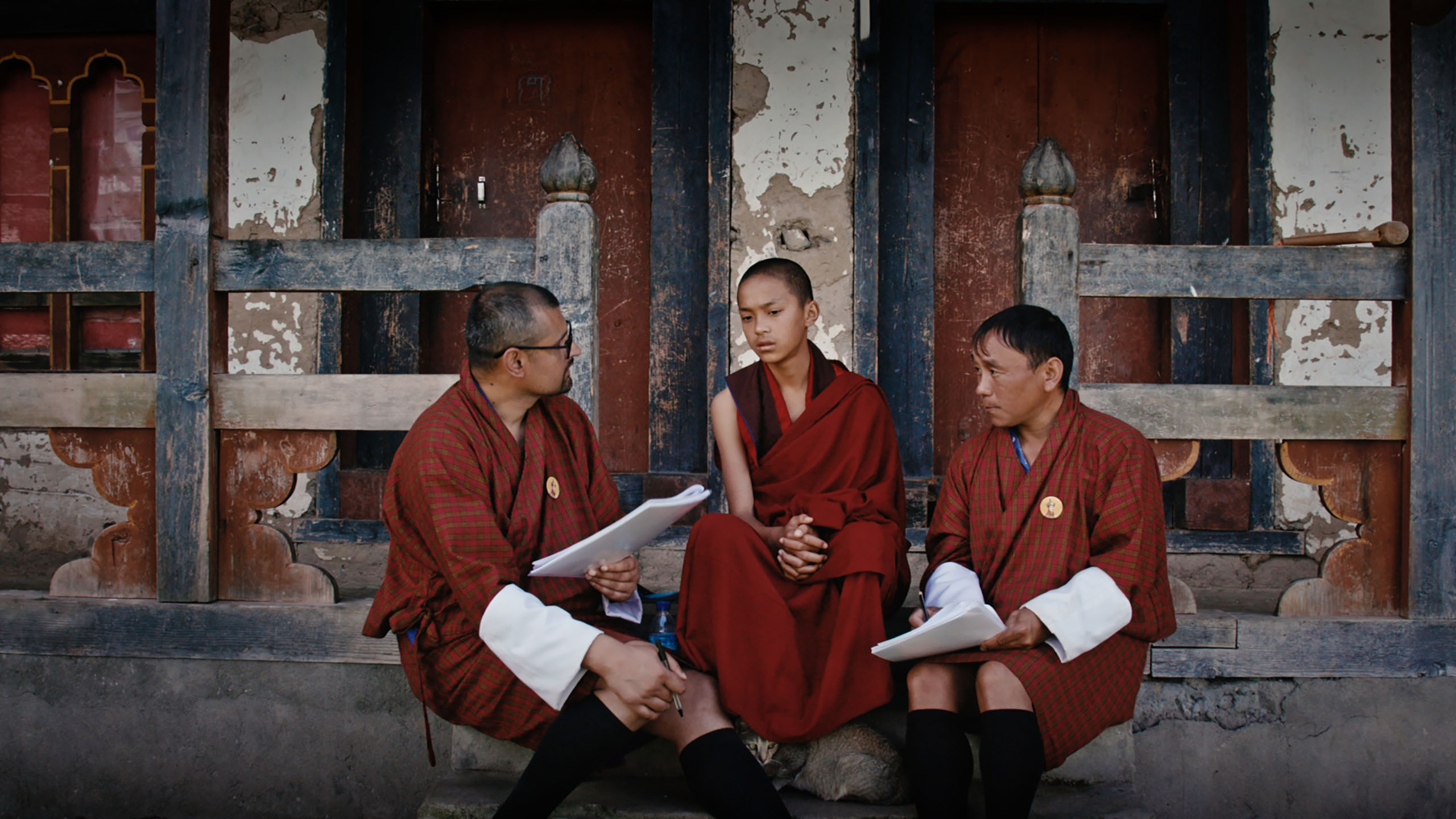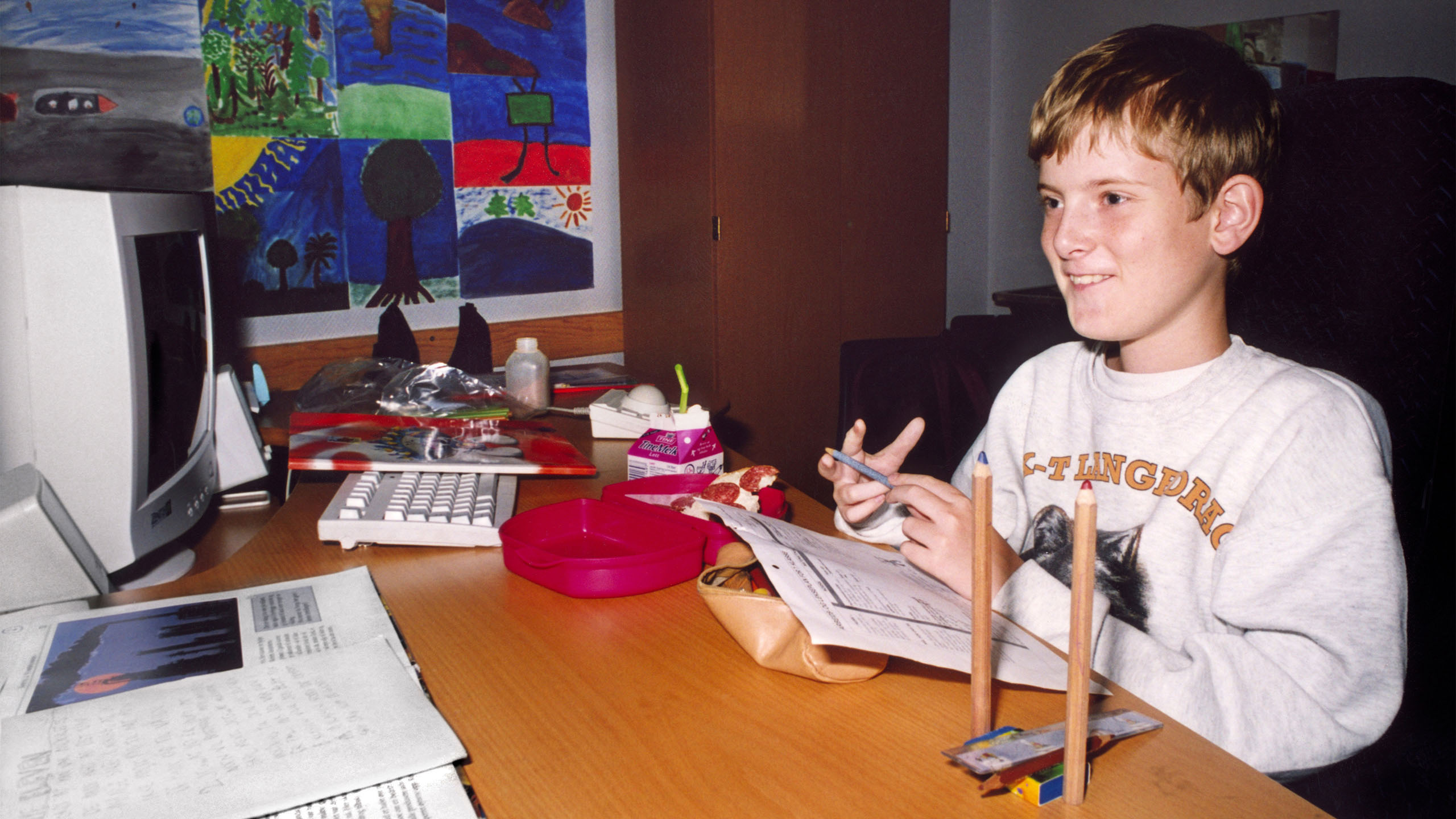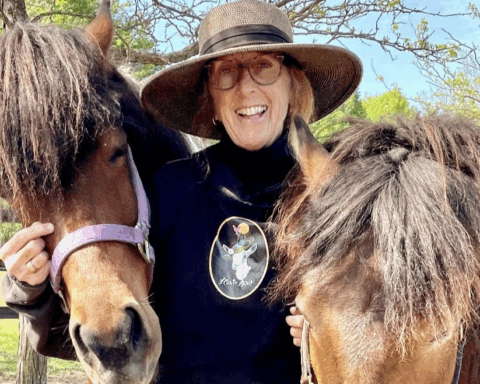Igualada
(Colombia/USA/Mexico, 81 min.)
Dir. Juan Mejía Botero
Program: World Cinema Documentary Competition (World Premiere)
In Colombia, the word “Igualada” is considered a derogatory term. Often assigned to members of poorer and rural communities, the word is used to describe someone who acts as if they deserve rights and privileges that supposedly don’t correspond to them. Once used as a verbal whip to shame people into compliancy, Colombian human-rights activist Francia Elena Márquez Mina, well known as Francia Márquez, has turned the word into a coat of armour for others to rally behind.
Igualada, from director Juan Mejía Botero (Death by a Thousand Cuts), tracks Márquez as she turns her activism into an unlikely grassroots presidential campaign. Speaking truth since she was a teenager, Márquez has kept the plight of those in her La Toma rural mining community close to her heart. A microcosm of the corruption and violence inflicted on many rural areas in Colombia, the predominantly Afro-Colombian residents of La Toma have had to continually fight against politically forced land evictions and rampant right-wing paramilitary violence.
Amid the calculated terror campaign that started under the Presidency of Álvaro Uribe, the community has witnessed the deep connection they have with the land be uprooted for capitalist interest. Even when Uribe was no longer in office, his economic expansion plans, which included pillaging the gold in the La Toma mountains, continued. While many people protest the illegal mining and fear tactics used to take their resources, standing up for one’s rights often comes at a steep price.
As Botero’s film notes, countless community organizers were assassinated, which made Colombia the most dangerous country in the world for local activists. The extreme risk to an activist’s life is felt early in Igualada when Márquez attends a campaign rally flanked by bodyguards holding riot shields. The point is further driven home in both an interview with Márquez’s mother, who explains why she must keep her distance from her daughter for safety concerns, and the fact that an assassination attempt on the candidate’s life occurred in 2019, two years prior to her launching her campaign. The film also shows Márquez discuss safety protocols to facilitate her presidential bid, which include moving her children outside the country for their safety.
The risk may be great, but it is clear throughout the film that the reward is far greater. It is a chance to uplift an entire country and break down the barriers that keep people in different boxes. One of the reasons her “I am because we are” campaign begins to resonate with the masses is that it preaches equality for all regardless of class, gender, race, faith, or sexuality. In one moving speech Márquez talks about how the women of Colombia have had to be the mothers and breadwinners in rural communities, but are rarely treated with respect or given the resources they need to thrive. A mother of two children herself, her words never feel like hollow political rhetoric, but actual lived experience.
Incorporating archival footage from 2009 interviews, Botero effectively shows how Márquez’s years of activism has led her to this pivotal moment. She has seen firsthand the way people who band together can force governments to backdown or change course.
Much of Igualada follows Márquez’s journey as she brings this knowledge on her quest to take part in the “Historic Pact” elections. Commencing in 2021, the Historic Pact of Colombia brings together various center-left to more left-leaning parties and social movements under one vote. The top two vote-getters will become the official Presidential and Vice-Presidential candidates for the 2022 elections.
Taking a traditional “on the campaign trail” approach, much of the tension in the documentary revolves around whether Márquez will be eligible for the election. As she and her small team scramble to get her name out there, Igualada frequently reminds viewers that, since she is running as an independent, she will either need to secure a certain number of signatures or an endorsement from a political party.
Either option comes with its own challenges. It also does not help that, as her popularity increases, she is subjected to plenty of hateful rhetoric, much of which is downright racist, that fills social media and television airwaves. At the same time, Colombians of all stripe recognize their own plights in her voice and Márquez becomes a social media grassroots sensation.
While the amount of anti-Black slander she receives would make others wilt, Márquez’s stem remains strong even in moments of self-doubt. Her fierce determination and willingness to give a voice to the voiceless makes her such a compelling subject. Márquez’s passion for breaking the chains that bind the oppressed is infectious, it allows Igualada to serve as a vital reminder that each person has the power to help evoke the change—no matter what they call you in the process.
Igualada premiered at the 2024 Sundance Film Festival.
Update (Feb. 4, 2025): Igualada screens at Hot Docs Ted Rogers Cinema’s Doc Soup series on Feb. 5.














